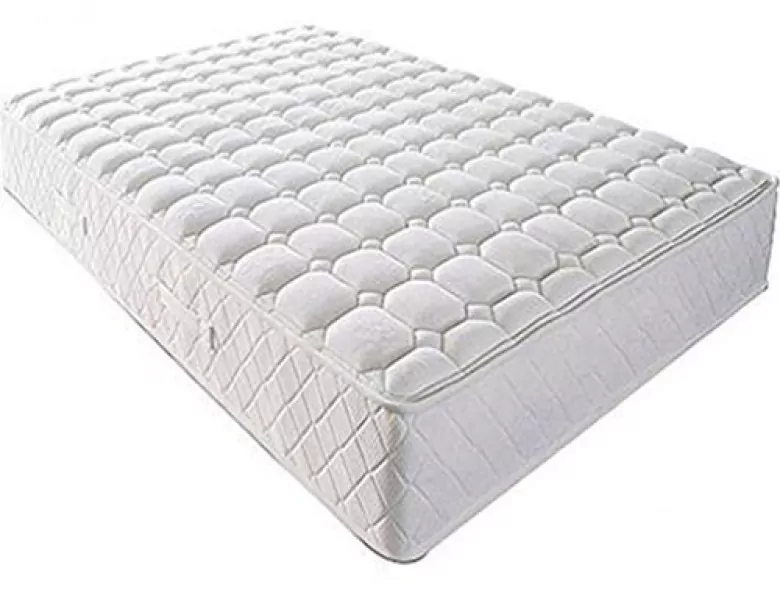Looking for a mattress but not sure where to start? Here’s a guide for you!

Mattress vs. Futon
There are a variety of bedding options to choose from in Japan. If a traditional bed frame and mattress were never your thing, you might want to consider sleeping on a futon. Futons have many practical advantages. They’re easier to move and store than mattresses, and can usually be found for much cheaper prices. If you have a tatami room in your house and want to sleep on a futon, you can make it into your bedroom. However, for many people who are used to sleeping on mattresses, sleeping on a futon can be quite uncomfortable. While futons are a traditional form of bedding, most people in modern Japan sleep in a bed. If you have trouble getting to sleep or suffer from back and neck pain, it’s probably a good idea to get a mattress.
Where to Buy Mattresses
Mattresses are sold at various furniture stores in Japan. Some of the most popular stores to shop for mattresses are Nitori and Ikea. Muji mattresses are also quite popular. Since many people in Japan, especially those living in cities, don’t have a car, most furniture stores will ship large items to your home. You can also order online from these stores. Another great place to find mattresses online, especially if you’re on a budget, is Amazon. They have a variety of brands and frequently run promotions, so you’re likely to be able to find an affordable mattress.

Mattress Sizes in Japan
There is a fairly wide range of mattress sizes available in Japan. The smallest mattress available is a size “SS” or “semi-single”. Semi-single mattresses measure 80 cm X 195 cm. Most people will find this size mattress to be quite cramped. It’s best for young children. The next largest size is an “S” or “single” mattress. Single mattresses measure 97 cm X 195 cm and are referred to as “twin” mattresses in some countries. “SD” or “semi-double” mattresses are 120 cm X 195 cm. They are an ideal size for someone who wants a mattress that is a bit larger than a single but doesn’t have space for a double, which measures 140 cm X 195 cm. Queen mattresses or “Q” size mattresses are 160 cm X 195 cm. While it is possible to find king-size mattresses in Japan, they’re rarer and many stores only carry up to a queen size. King-size mattresses are also referred to as “K” size and measure 180 cm X 195 cm.

Mattress in a Box
Mattress-in-a-box brands have become quite popular in North America, with companies like Tulu and Purple selling thousands of mattresses every year. While there aren’t as many mattress-in-a-box brands in Japan, you can get your hands on one. Koala, an Australian brand, sells their boxed mattresses in Japan. Sweetnight is another mattress in a box manufacturer. Getting a mattress in a box is very convenient. They’re much easier to get into your bedroom than mattresses that aren’t shrunken down to fit in a compact box. In addition, they’re also simple and easy to set up on your own. You won’t need anyone to come into your home and install it.
Finding a Bed Frame and Bedding
You will be able to find a bed frame and bedding at most furniture stores. Many stores that don’t sell mattresses or bed frames sell bedding, so if you’re looking to bring a particular aesthetic to your home, we encourage shopping at a variety of home goods stores. Franc Franc and Deco Home have some particularly stylish items. If you get a queen or king-size mattress, you may have a harder time finding a bed frame and bedding. This is because queen and king mattresses aren’t very popular in Japan – most people don’t have space for them.

When You Need to Get Rid of a Mattress
Large items like mattresses can be hard to get rid of when you’re moving. If your mattress is in good condition, consider selling or giving it to someone who is looking for one. Jimoty is a site where locals can try to sell, give away, or find used furniture (among other things). Alternatives to Jimoty include Craigslist, which is mainly used by foreigners in Japan, and local Facebook groups in your area. If your mattress is in bad condition or you can’t find it a new home, you’ll probably have to pay to dispose of it. Fees for oversized garbage disposal vary by city. You’ll likely have to get in touch with a local government office to pay for and schedule an oversized garbage pickup.



